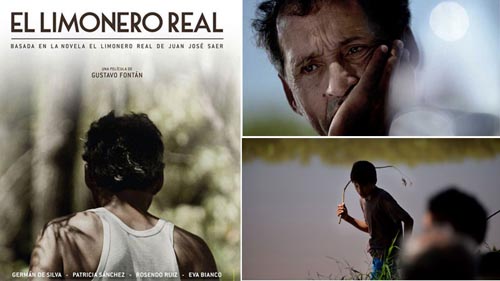
By Roger Costa
Neighboring Scenes, the New Latin American Cinema Festival presented at Film Society of Lincoln Center in NYC January 26-31, will showcase some of the most authentic works by promising Latin filmmakers, including films from Brazil, Mexico, Argentina, Colombia and Chile, and a special screening for the 50th anniversary of Glauber Rocha’s political satire “Terra em Transe”. Among the new films, most having its US or North American Premiere, an important aesthetic prevails through the narratives: contemplative observations on its protagonists, their bodies and movements, as well as their right to be, their environments and the landscapes giving them identity. These films present an intense sensibility as they examine the link between the players, whatever their situation, and the land, wherever they are:

In “Where I Grow Old” (Brazil, dir. Marilia Rocha) two Portuguese women decide taking Belo Horizonte in Brazil as their new home, attempting to find meaning and confidence. A strongly sensitive, honest and feminine look on urban connections, co-dependence, modern love and the cultural clash (“here we break the rules”, one of the boyfriends say) between old and new worlds, the film absorbs these women’s perspectives and new experiences as a profound study on the Generation Y. “Jesus” (Chile, Fernando Guzzoni) is a shocking, scandalously raw portrait of the young generation, following a rebellious and ambiguous teen as he delves into the inescapable process of understanding himself while living with dancing, rock’n’roll, drugs, vandalism and unsafe sex. Brilliantly acted, the actors provide powerful personifications, especially when the focus is the complicated relationship between the teen and his father. Family matters are also explored with sincerity and intensely performed in “This Time Tomorrow” (Colombia, Lina Rodriguez). Uncovering topics of tolerance and acceptance through the open interactions between a couple and their young daughter, it’s an insightful look at a modern family, their challenges and conflicts, their closest friends and relatives, and how they cope with a sudden tragedy. It is also an important study on generations, as it meditates on various perspectives coming from dialogues among them. In an astonishing atmosphere shot with luminous lyricism, “El Limonero Real” (Argentina, Gustavo Fontan) invites the audience to a rural land, where a farmer and his wife are still grieving their son’s death. They are joined by a young nephew while cultivating for the land and surviving through their suffering. The same happens in the surreal, quiet, melancholic “The Last Land” (Paraguay, Pablo Lamar), where an old man cares for his ill wife as she slowly dies, uncommunicative. It carries an extremely subtle structure of rituals and mysticism, creating a fascinating ritualistic experience. In a subtly aesthetic as well, that develops through three silent interconnected stories of women defying war, “Dark Animal” (Colombia, Felipe Guerrero) is a feminine metaphorical examination on fear and the horrors of brutality. In “A Decent Woman” (Argentina, Lukas Rinner) the title-role finally learns and discovers her identity as she starts a housekeeping job in a wealthy private area, surrounded by a nudist resort. As the protagonist Belen, Iride Mockert gives a fabulously surreal and bizarre performance, causing an immediate catchy impression with her curious reactions over the new community and its unusual hobbies. It’s an eccentric Bunuel-inspired comedy that redefines contexts of the Bourgeoisie, the modern underprivileged class and social liberation. “Site of Sites” (Dominican Republic, Natalia Cabra, Oriol Estrada) is an insightful documentary that looks at the lives populating a beach resort area. The film is a social-political statement filled with truthful observations on love, labor, passion, family and hope, revealed through the portraits of construction workers, a housemaid, a girl hanging by the pool, gardeners and other inspiring figures. With enormous intensity, “Black Sun” (Colombia, Laura Huertas Millan) is a painful, moving and transparent doc that looks at a recovery facility, where testimonies of vices, addictions and how families are affected by the issue are vividly exposed through the struggles of the participants. It screens along with two shorts, “A Casa Cinza e as Montanhas Verdes” (Brazil, Deborah Viegas) a poetic experimental look at a highway and its speedness, and “Vacio(a)” (Peru, Carmen Amelia Rojas Gamarra) also an experiment that tells the story of a Lesbian broken relationship using IKEA advertisements. A showcase not to be missed.
(Directors will be in attendance for live Q&A and Introductions. Go to www.filmlinc.com for full schedule.)






















Comments